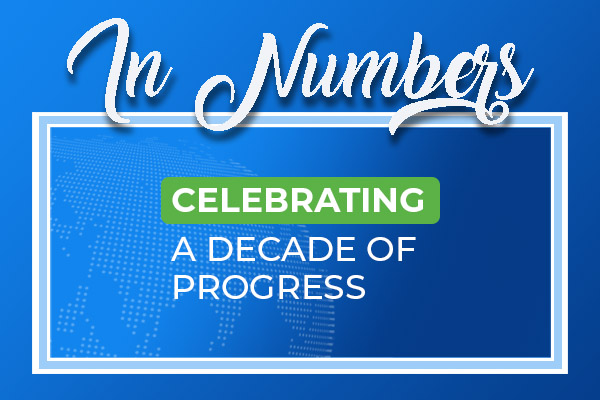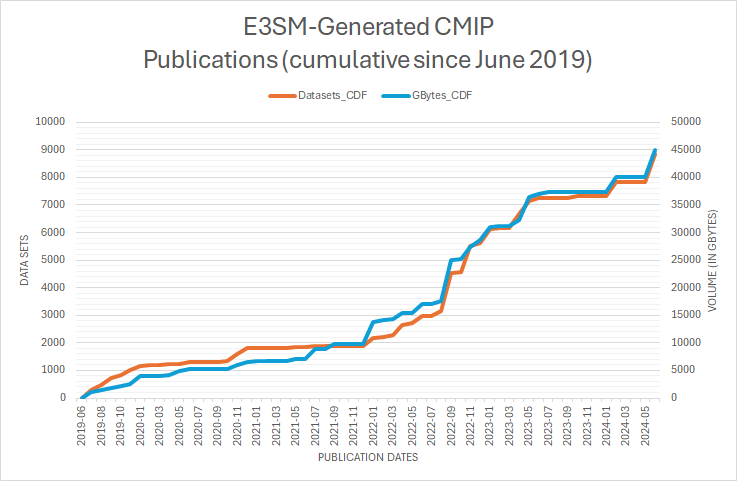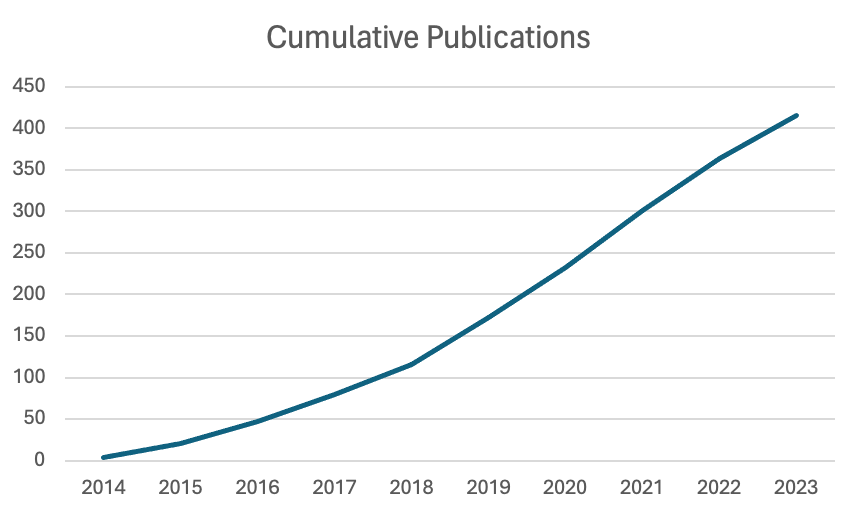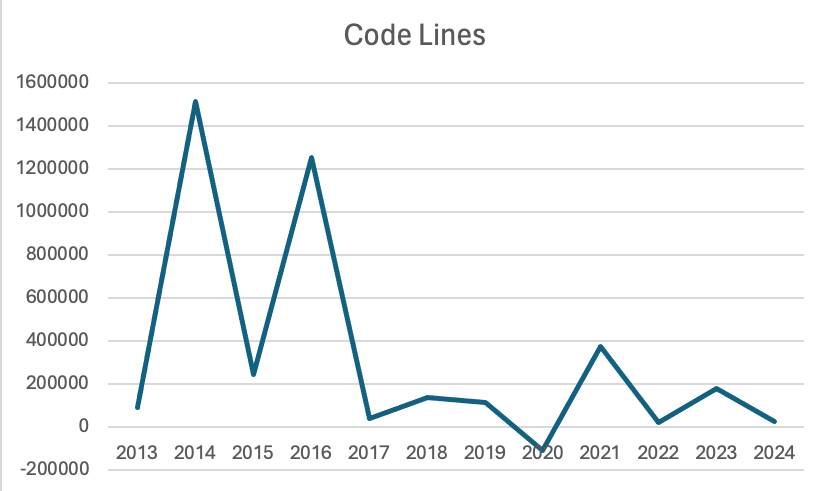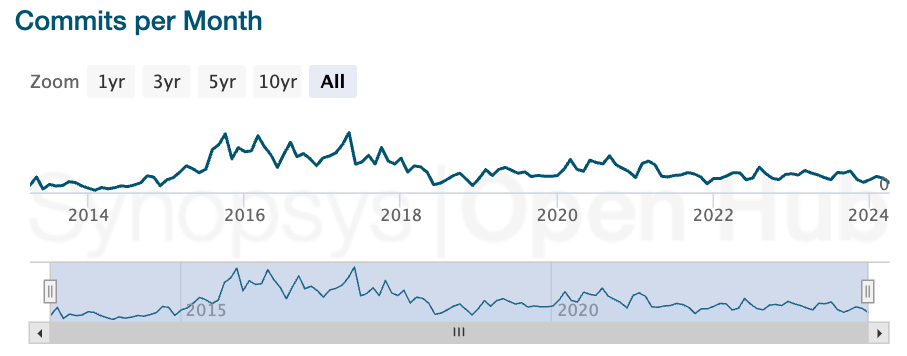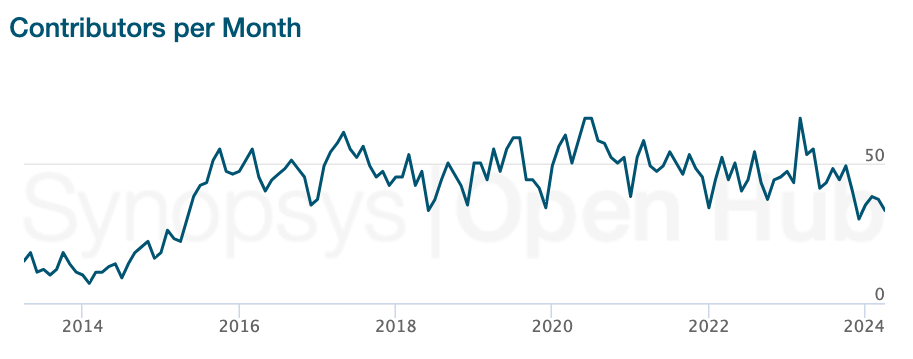E3SM – A Decade of Progress: In Numbers
In this quarter’s newsletter, to celebrate E3SM’s decade of progress, we take a look at E3SM in numbers, as one way to capture some of the team’s achievement over the last 10 years.
Simulation Output
- Nearly 1.5 petabytes of published native data (Fig. 1a).
- Over 60 terabytes of published CMIP6 data: 45 terabytes E3SM-generated, 15 TB for others (Fig. 1b).
- Over 70,000 CMIP6 datasets (Includes contributed non-E3SM datasets).
- Over 170,000 experiments run.
Journal Publications
- Over 400 papers published (Fig. 2a-b). Note that fewer publication numbers are expected during the intense development phase (late 2022 to 2023).
- E3SM papers have been cited over 13,000 times, ultimately giving an h-index of 63 on Google Scholar (Fig. 2c).
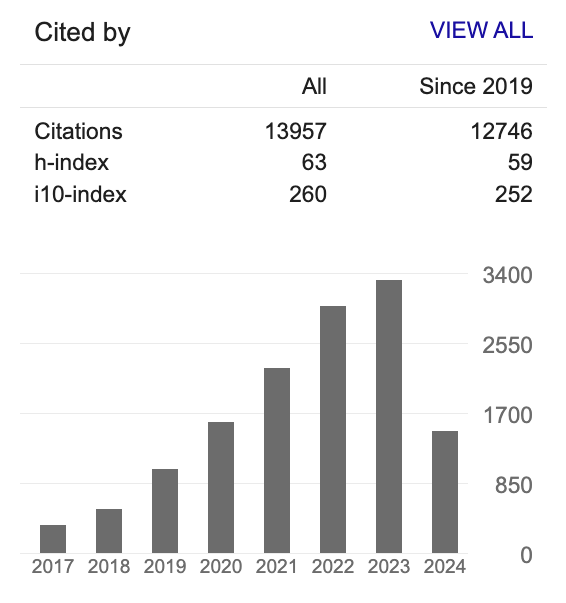
Figure 2c. Number of citations of E3SM papers per year and h-index, Google Scholar
Code
E3SM is an open-source project, freely available on GitHub.
- OpenHub describes E3SM as “Very High Activity”, which they calculate as a weighted combination of contributor and commit counts. OpenHub notes that “Only a small percentage of projects on Open Hub will display the Very High icon.”
- Over 13,000 views.
- Over 2,800 clones. That means 2,800 people have cloned the repo to their own workspaces. Cloning is often done to add more features to the code. Modelers also clone E3SM so that they can run E3SM.
- Over 300 forks of the E3SM repo. Forks enable users to create their own version of the repo.
- Over 3,500 merged pull requests.
- Over 300 stars – that is, over 300 people have marked E3SM as one of their favorite repositories (Fig 3a).
- Millions of lines of code (Fig. 3b-d).
- Over 67,000 commits in total (Fig. 3e).
- Often over 50 contributors per month (Fig. 3f).
People
The E3SM project is a multi-institutional, interdisciplinary project across all areas of earth sciences, computational, mathematical and engineering domains. Led by Lawrence Livermore National Laboratory (LLNL), the project includes leadership from 7 other DOE national laboratories: Argonne (ANL), Brookhaven (BNL), Los Alamos (LANL), Lawrence Berkeley (LBNL), Oak Ridge (ORNL), Pacific Northwest (PNNL), and Sandia (SNL). In addition, the project has important contributions from scientists across multiple academic institutions.

Figure 4. E3SM Executive Committee (left-to-right): David Bader, Ruby Leung, Mark Taylor, Renata McCoy
- The E3SM Executive Committee consists of 4 members: Chair and Principle Investigator (PI) David Bader (LLNL), Chief Scientist Ruby Leung (PNNL), Chief Computational Scientist Mark Taylor (SNL), and Chief Engineer Renata McCoy (LLNL) (Fig. 4).
- The larger 29-person E3SM leadership team consists of 25 additional scientists, who are leaders of 10 science groups and 2 crosscutting groups from 8 DOE labs in the E3SM project (Fig. 5a). The leadership team comprises of 28% women.
- The exact number of E3SM staff members fluctuates as lab employees, university partners, and students join and depart. In December of 2023, DOE lab employees accounted for 117 E3SM staff members (Fig. 5b).
Website Analytics
Below are interesting data from Google Analytics 4 (data since Apr 2023) for the e3sm.org website
- Over 13,000 users visited the website from Apr 23′ to Jan 24′
- The users are from all over the world with the US, China, Germany, India, the UK, Canada, and Japan leading the way
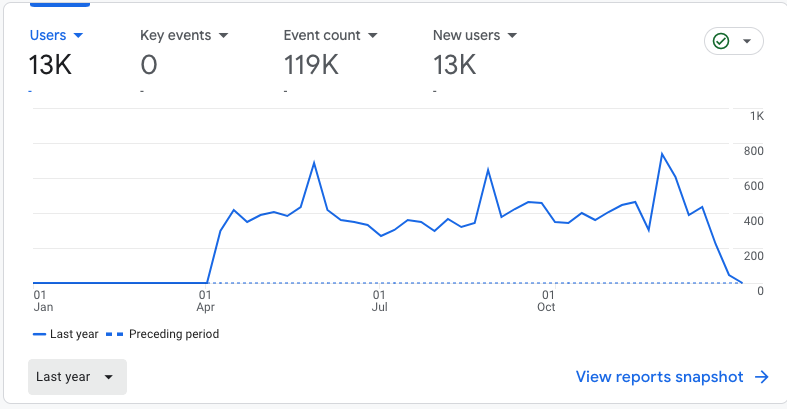
Figure 6a. Number of users of e3sm.org in a year.
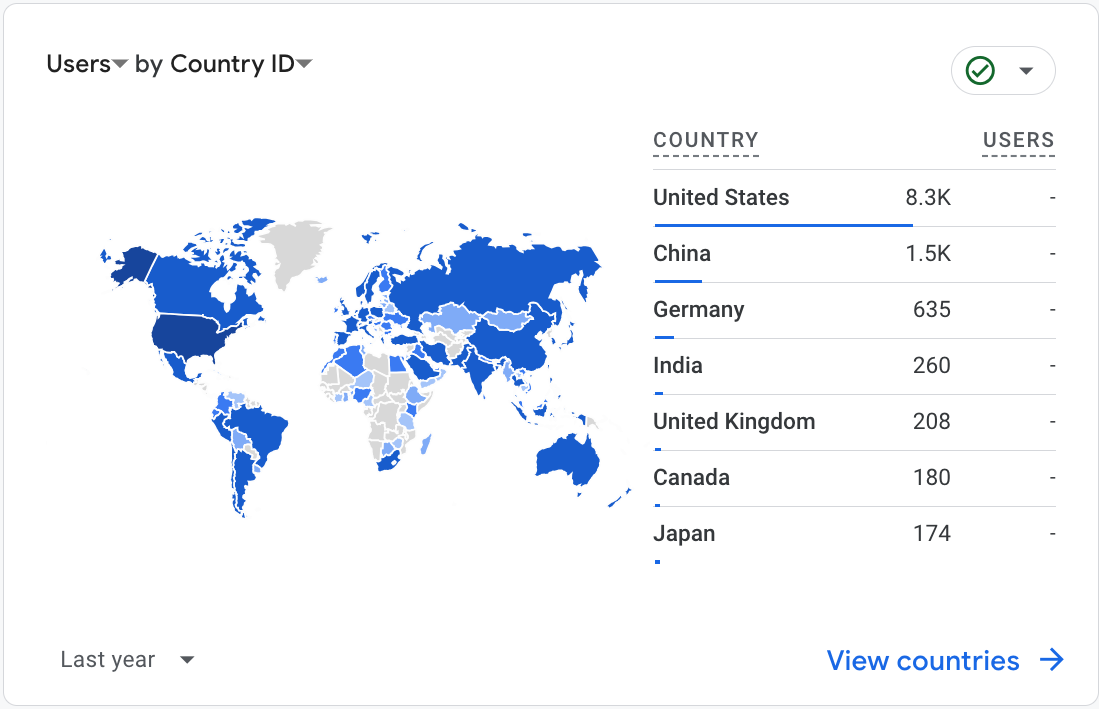
Figure 6b. e3sm.org users per country of origin, in order.
This article is a part of the E3SM “Floating Points” Newsletter, to read the full Newsletter check:


